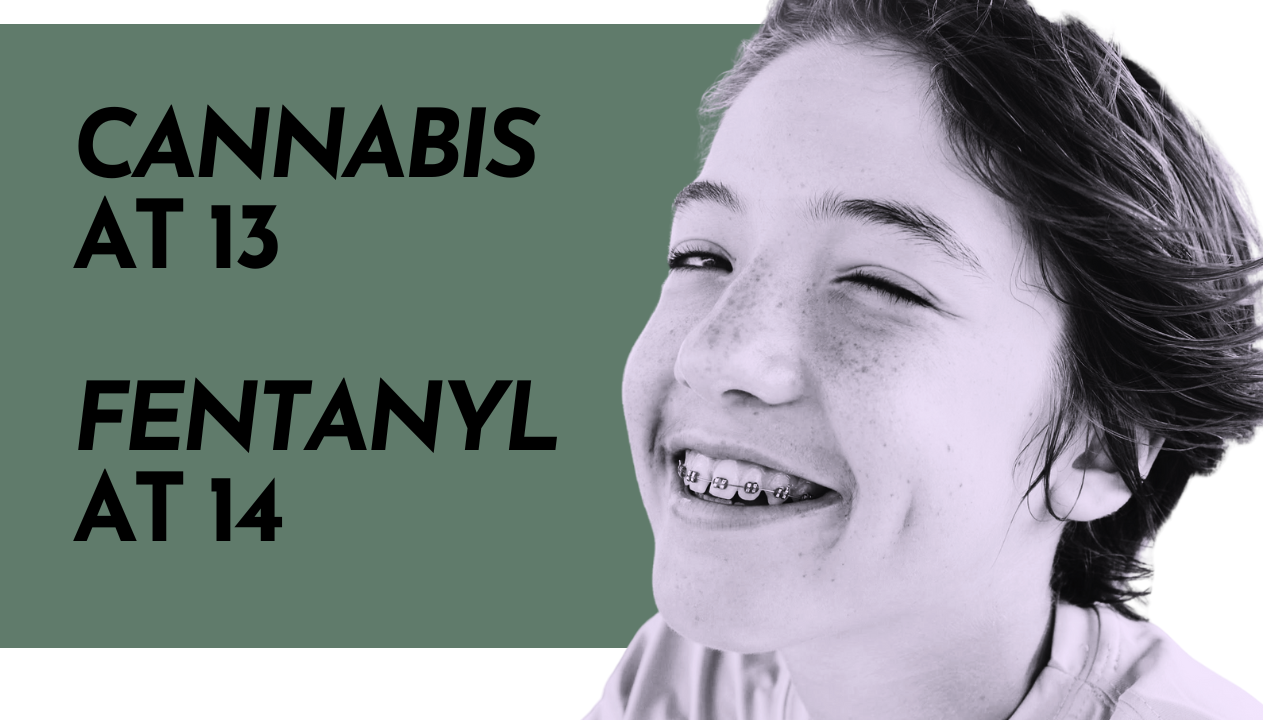Posted on September 5, 2022 View all news
Alexander Neville lost his life when he took a pill that turned out to have enough fentanyl to kill four people. It was a mistake that cost him his life.
It seems like we always get a second chance to fix our mistakes. Alex didn’t get that opportunity this time: instead he left behind a grieving family and a legacy. At fourteen, he was old enough to make big mistakes, but he was too young to have a legacy. Alex’s legacy is this conversation about illicit fentanyl that kills and the cannabis use that led up to it.
Alex was your regular kid. Skateboarding, gaming, brilliance, angst, and attitude. He was always a little more sensitive than most kids, and he was loved for it. We always recognized his sensitivity as another sign of his maturity. It was also a sign that there was something else that needed to be addressed. Alex was diagnosed with attention deficit disorder (ADD) in the few months before he died.
When he was thirteen, Alex started consuming cannabis. Once we found out, we had a lot of consequences and conversations with him about it. As parents who don’t drink or consume illicit substances, we tuned in to him as best we could and worked to keep him from it. Our efforts did little to dissuade him and he sunk deeper into the grips of cannabis. He found it helped his “noisy” brain which made it difficult for him to see the long-term effect it has.
In various studies, cannabis has been shown to be addictive despite its reputation to the contrary. Alex’s academics suffered as he lost his focus and motivation for things he once enjoyed. He fought with his parents more often. His relationship with his sister deteriorated. He stopped progressing with skateboarding and would lose his patience with his abilities. Within months, we decided it was time for a break and he started intensive therapy at an in-patient facility where adolescents like him could get help.
For a time, Alex started to heal. While he was free from substances, he had some breakthroughs, and things were hopeful and positive. Upon coming home, he did well until he began smoking cannabis again. Within a month, he started to backslide. At that point, the dealer presented him with pills. Xanax and Oxycontin.
Oxycontin is addictive on its own—the pharmaceutical companies hid this fact when bringing it to market. It turns out that nearly the entire supply of illicitly sold Xanax and Oxycontin is fake. Instead of highly addictive pharmaceuticals, most pills and powders on the black market are made with fentanyl—a drug 50–100 times more potent than morphine, and far more addictive than anything else available. This potency also is indicative of its danger. Two milligrams of fentanyl (an amount that looks like a couple grains of salt) is enough to kill someone.
Alex would not have died from cannabis alone, but he would not have died without it. Most people who try drugs begin with cannabis, just like he did. Even without the drug that killed him, cannabis was bringing him down. The troubles that Alex had with cannabis were typical.
Alex’s brain was slowly getting used to the artificial release of chemicals that cannabis provides. Eventually, his brain stopped naturally releasing them causing him to lose motivation, interest, and enthusiasm for his world. Instead of life getting easier with weed, it just got harder. The stress and anxiety of young adulthood were already there. Instead of relieving that stress and anxiety, cannabis wreaked havoc on his ability to cope.
Eventually, it wasn’t enough. Alex moved on to what he believed was Xanax and Oxycontin. On 6/22/2020 he was given a counterfeit pill made with fentanyl. It took his life, and we are left here to miss him for the rest of ours.
Amy Neville, Alex’s mother
Please visit the Alexander Neville foundation
Please watch the video below to honor and remember Alex.


Dear God, he was just a baby. I’m so just distraught that Alex paid for his mistakes with his life. This is so incredibly unfair. Thirteen year olds simply do not have — cannot have — the emotional maturity to grasp the potential consequences of using illicit substances. My own son is paying a heavy price for his foray into Delta 8 and God only knows what other substances along the way. He is suffering from psychosis that is not getting better; we fear it has become a chronic condition, schizophrenia. He was a brilliant, talented, happy kid. We as a society cannot afford to lose our kids like this.
I am so so sorry. Amy I bet you were an AMAZING MOTHER! This is not your fault and I really hope you and your family are doing ok at this time. Praying for you all! 🩷